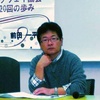
Juliet Kono's novel "Darkness" depicts a Hawaii-born second-generation Japanese-American woman surviving a life of hardship during and after the war. Ippei Maeda, a scholar of American literature, translated the novel over the course of 10 years and published it at the end of last year. We asked him about the …
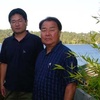
Juliet S. Kono's novel "Darkness" depicts a Hawaii-born second-generation Japanese-American woman surviving a life of hardships during and after the war. Ippei Maeda, a scholar of American literature, translated the novel over the course of 10 years and published it at the end of last year. We asked him about …

Juliet Kono's novel "Darkness" depicts a Hawaii-born second-generation Japanese-American woman surviving a life of hardship during and after the war. Ippei Maeda, a scholar of American literature, translated the novel over the course of 10 years and published it at the end of last year. We asked him about the …
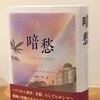
Unique "Japanese Literature" For second- and third-generation Japanese American or Canadian writers, the tragedies of Japanese people brought about by the Pacific War, such as the state's internment policy, have become major themes in their works, such as John Okada's No-No Boy, Joy Kogawa's Obasan, and Julie Otsuka's When the …
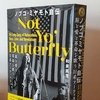
Nobuko Miyamoto, a third-generation Japanese-American, has had what is commonly called a "life full of ups and downs." However, if "life full of ups and downs" means being buffeted by the turbulence of the times and encountering unexpected situations, then in Miyamoto's case, in addition to that, her life is …
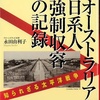
It is well known that with the outbreak of the Pacific War, Japanese and Japanese-Americans in the United States were forcibly isolated and placed in internment camps. It is also well known that a similar policy was implemented in Canada, although not to the same extent as the internment in …
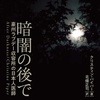
Detention Centers, Institutions for Disease Control, and Wavering Feelings It is well known that at the start of the Pacific War, Japanese and Japanese-Americans in the United States were deemed "enemy aliens" and isolated in internment camps, but what is less known is that similar internment camps also existed in …